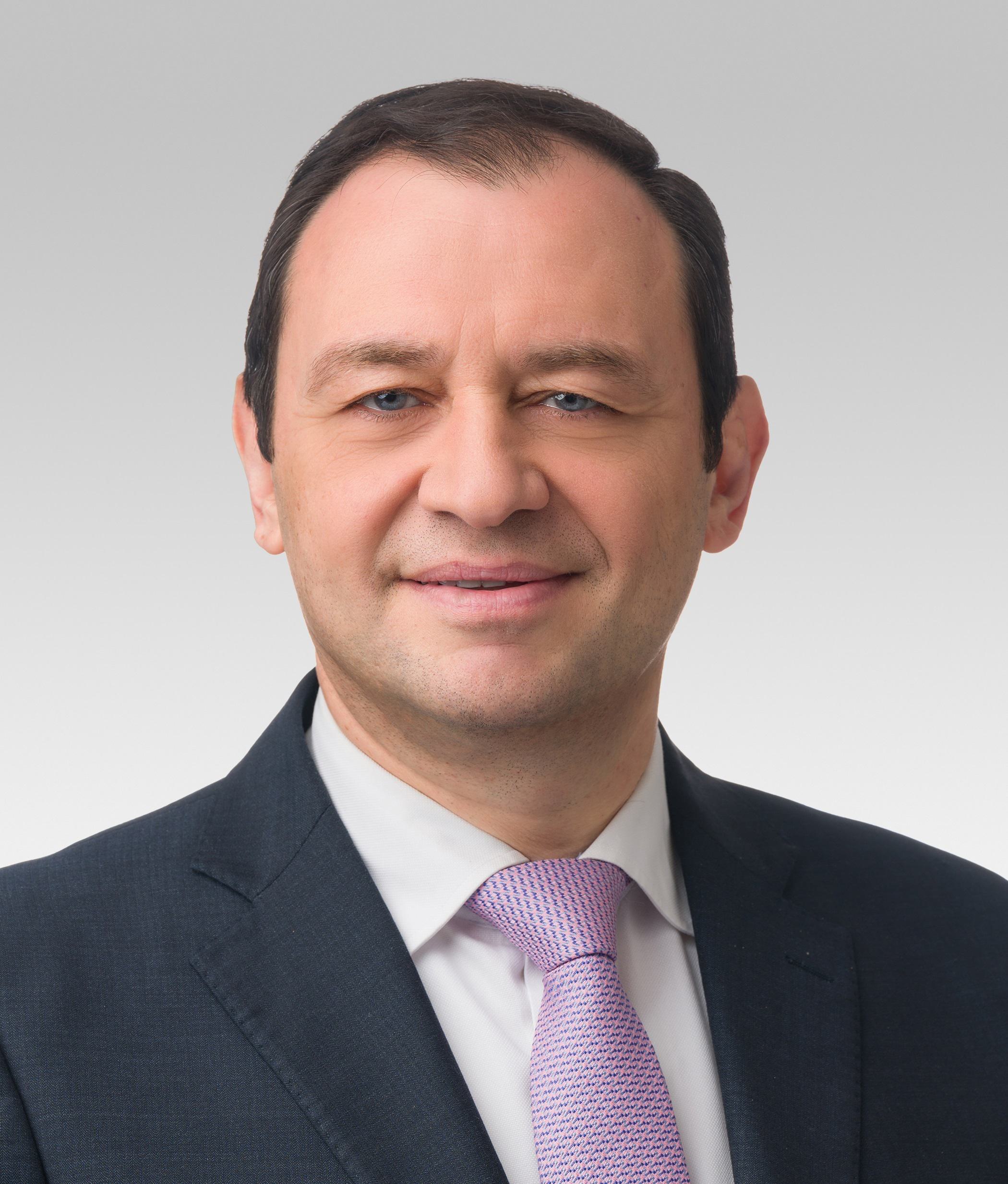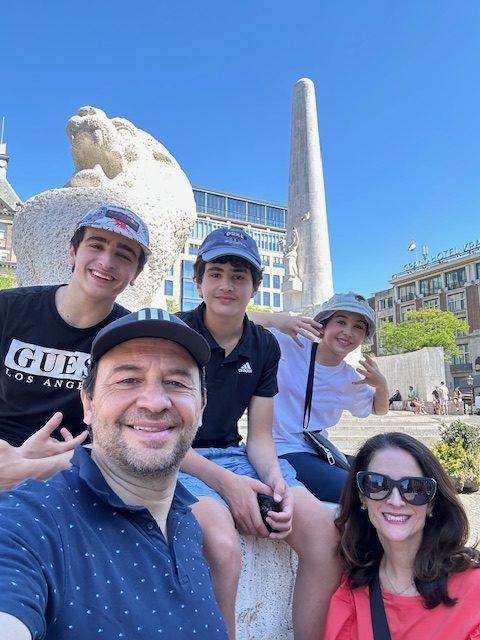
Momen Wahidi, MD, MBA
Professor of Medicine
Northwestern University Feinberg School of Medicine
Medical Director, Canning Thoracic Institute
Health System Director, Interventional Pulmonology
Clinical Practice Director, Division of Pulmonary and Critical Care
Co-Medical Director, Northwestern Medicine Lung Cancer Screening Program
Northwestern Medicine
Do you think Dr. Wahidi:
-Reached a brown belt in karate and won some local competitions?
-Has traveled to 48 countries?
-Is a skilled golf player?
Give us your “elevator pitch” biography.
I grew up in Syria and immigrated to the U.S. at a young age to pursue higher education. My journey took me to Indiana University for Internal Medicine training where I worked with a fantastic mentor, Dr. Michael Hart. He sparked my interest in pulmonary medicine, and we worked together on the permeability of porcine pulmonary artery endothelial cells. I presented our work at the ATS Annual meeting (shoutout to early involvement in ATS!) then received the best house staff research award at Indiana University Medical Center. My affinity for pulmonary medicine took me to pulmonary and critical care medicine fellowship training at Duke University Medical Center. There, I worked with my mentor and division chief, Dr. David Schwartz, on studying the genetic patterns of familial pulmonary fibrosis. My fondest memory is when the research coordinator and I traveled to Bemidji, MN for a reunion of a family with familial pulmonary fibrosis; we drew blood and performed spirometry on every family member at a picturesque lake setting with gracious people who wanted to help science.
I was eventually drawn to the nascent field of interventional pulmonology with its ability to empower pulmonologists to take care of their patients holistically from diagnosis to staging of lung cancer and therapeutic interventions on their airways. I completed my IP fellowship training at Beth Israel Deaconess in Boston and returned to Duke in 2003 to start a brand-new state-of-the-art IP program.
Nineteen years forward and the Duke IP program became one of the premier programs in the country with five interventional pulmonologists, IP fellowship training and a robust research program. During those years, I kept my curiosity in medicine and participated and led numerous clinical trials, crafted evidence-based guidelines and mentored many trainees.
Furthermore, my desire to make an impact on patients and physicians alike led me to obtain an MBA degree from the Duke Fuqua School of business with the goal of having a seat at the table and working closely with health care leaders on shaping the way we care for our patients. I was fortunate to participate in many leadership roles at Duke in the pulmonary division, the clinical practice and the health system.
In the spring of 2023, I made a giant leap and moved to the Windy City to assume the medical directorship of the Canning Thoracic Institute, the respiratory service line for the Northwestern Medicine health system of 11 hospitals across the Chicagoland area.
Not only were my three teenage kids upset with moving schools, but we now had to stock up on heavier winter gear and get used to the long commutes into the city! It’s been nothing but wonderful to be able to shape up the present and future of lung health at a vibrant health system in an iconic city! While my leadership portfolio has grown, I remain passionate and active in delivering clinical care, pursuing clinical trials in thoracic oncology and IP, and mentoring junior faculty and trainees.
What would you tell yourself as an Early Career Professional?
Remember that “you miss 100 percent of the shots you don’t take” (Wayne Gretzky). Too often, you hesitate and wait until you feel perfectly prepared or certain of the outcome before stepping forward. The biggest growth comes not from safe choices but from the moments when you stretch beyond your comfort zone, ask for opportunities and take chances.
To add another famous proverb: “Closed mouths don’t get fed.” Get out there, raise your hand, interact with people, and don’t be afraid of failure!
If you weren’t in medicine, and were in a different industry altogether, what would you be?
I am afraid I am not good at anything else! I think I would find real joy in running a small restaurant or food truck. I love the idea of cooking comforting meals and sharing them with people, while also getting to chat with customers and create a warm welcoming space. There is something deeply rewarding about bringing people together around food; it is another way of caring for others, not that different from health care!
What is your favorite way to spend a day off?
My favorite way to spend a day off is simple—getting in some exercise to clear my head, then spending the day with my family. I enjoy firing up the grill for some delicious grilled chicken or steak, making a mean salad, and finishing up with some hot black tea infused with fresh mint. At the end of the day, nothing beats watching a movie together at home but never a horror movie!
If it is ever more than one day off, we are off on an airplane exploring the world as a family. As I always tell my kids-two things you will never regret spending money on in life: education and travel!

What areas of medicine are you most excited to see develop?
This may not be very original, but I am really excited about the role AI will play in pulmonary medicine: from improving the accuracy and speed of image interpretation, to predicting disease progression, and streaming clinic workflows. In fact, we are getting ready to trial an AI tool that will call, in a human voice with human interaction capabilities, our patients who qualify for lung cancer screening to schedule their annual screening chest CT. How fantastic is this!
What is one advancement in your field you’d like to see in your career?
What excites me about interventional pulmonology today is the advent of rapidly evolving and advanced technology paired with our renewed energy and improved ability to validate its role through rigorous scientific research. We are no longer simply adopting innovations - we are actively shaping them, testing their impact and defining how they improve patient care. This ensures that our field is not just advancing quickly, but also responsibly, with patient outcomes at the center of every step forward.
Which statement did you make up?
I enjoyed karate and went far until two of my ribs got broken by a powerful kick from my Sensei and made me reconsider my choices! I love to travel and, indeed, I have been to 48 countries and am planning to visit Australia soon. Sadly, I am not coordinated enough to play golf!